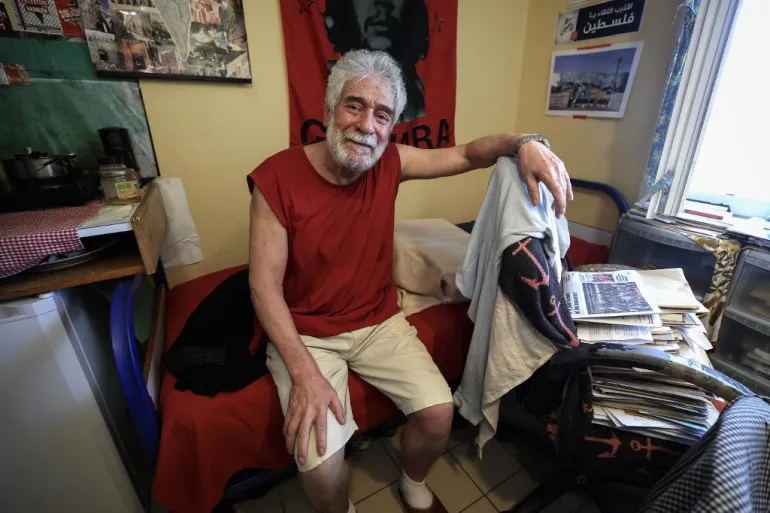Georges Ibrahim Abdallah, a Lebanese pro-Palestinian militant, has been released from a French prison after serving over 40 years behind bars. His release on July 25, 2025, ends one of the longest detentions of any political prisoner in modern French history. Abdallah, now 74, was convicted in 1987 for his role in the 1982 assassinations of U.S. and Israeli diplomats in Paris. Despite being eligible for parole since 1999, he remained imprisoned due to political pressure and legal delays.
Abdallah was a founding member of the Lebanese Armed Revolutionary Factions (LARF), a Marxist group that supported the Palestinian cause and carried out armed operations in Europe during the 1980s. He was arrested in Lyon, France, in 1984 and later sentenced to life imprisonment. Over the years, his supporters in Lebanon and abroad have consistently referred to him as a freedom fighter and political prisoner, while critics have labeled him a convicted terrorist.
Following his release, Abdallah arrived in Beirut to a hero’s welcome. He was greeted by crowds waving Palestinian and Lebanese flags, with many chanting slogans of resistance. Political groups and activists in Lebanon celebrated his return, describing it as a victory for justice and a symbol of unwavering dedication to the Palestinian struggle.
French authorities approved his release on the condition that he leave the country and never return. The court ruled that continued detention was no longer proportionate, given his age, behavior in prison, and time served. The ruling emphasized that Abdallah had shown no signs of violence during his incarceration and that further imprisonment would serve no meaningful legal purpose.
The release sparked criticism from the United States and Israel, both of which had previously opposed his parole. U.S. officials expressed disappointment, citing the seriousness of his crimes and potential security risks. Nonetheless, the French court maintained its decision, stressing legal fairness and humanitarian grounds.
Georges Abdallah’s release has reignited debate over political imprisonment, armed resistance, and the complex legacy of revolutionary movements. While supporters view him as a symbol of resilience and commitment to liberation, opponents see his freedom as a troubling message in the fight against terrorism.


